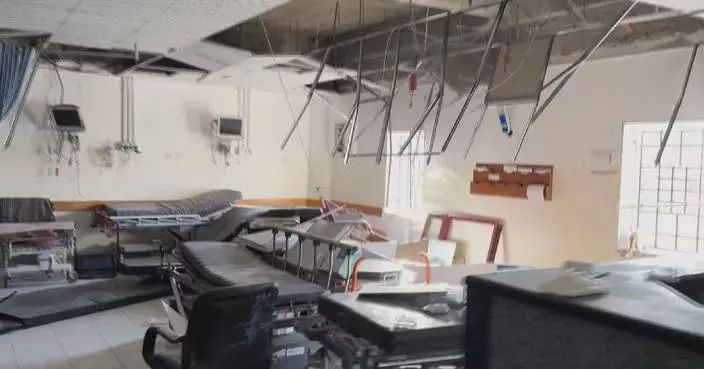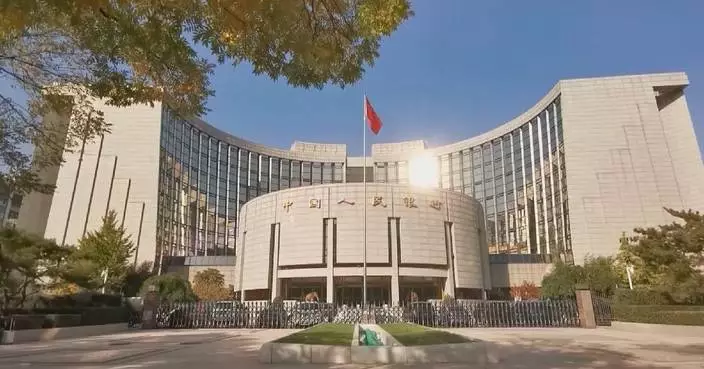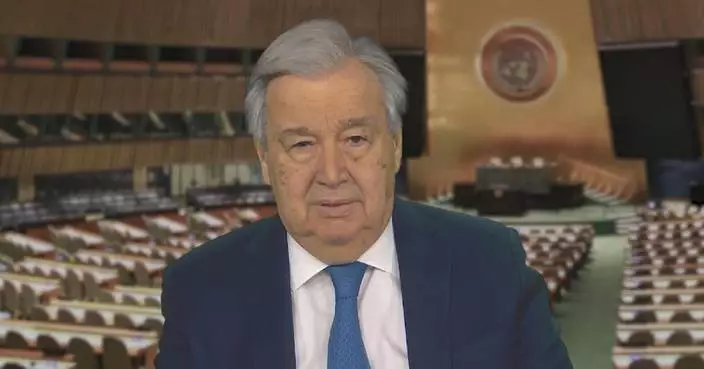Fehmi Al Saqqa, a musician from Al-Rimal in Gaza City, has been devoted himself to helping displaced children in war-torn Gaza overcome their fears and find an escape from the horrors of war through the healing power of music.
Following the outbreak of the ongoing Israel-Palestine conflict on Oct 7, 2023, Fehmi, along with other refugees, fled to Khan Younis in southern Gaza, where he currently resides.
At a refugee camp there, Fehmi teaches children music despite the ongoing bombardments.
He believes that music can provide the children and also himself with solace in such difficult times.
"Music is the biggest part of my life. I have been devoted to it. When I was younger, I worked in a recording studio. Composing music and teaching the children here take up most of my time," he said.
Many schools in Gaza have been converted into shelters. A year after the outbreak of the conflict, about 630,000 children in Gaza are unable to return to school and these schools have also been targeted in Israeli attacks.
Fehmi hopes that music can offer these children a way to confront their fears.
"At any moment of the day or night, the children may hear the sounds of rockets and airplanes. This is what life's like in a refugee camp. From the moment we wake up until we go to sleep, every day the same routine is repeated. For the children, it’s a tragedy mixed with fear. They’re deprived of their basic needs. They’ve lost their homes, their schools…everything they were used to. Through music, we teach them that there's still hope, and that life goes on. They can try to express themselves through music," Fehmi said.
"Being with the children and music allows me to feel the essence of life. For both us and the children, music serves a balm for the soul, dispelling the shadows of war," he added.
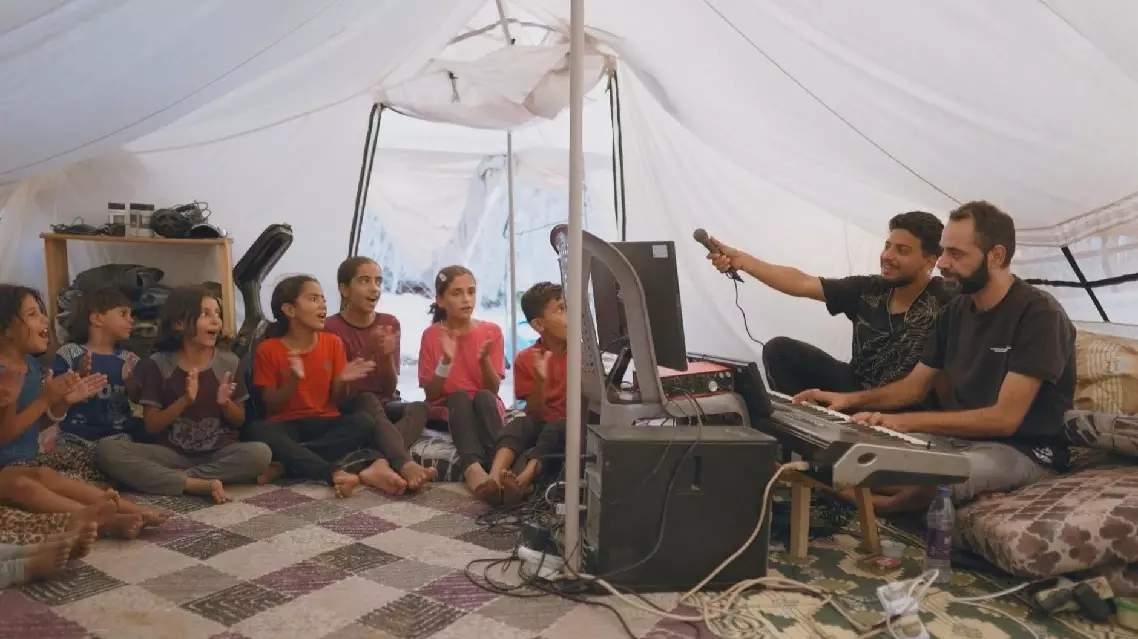
Gaza musician teaches displaced children music to dispel fear of war
Various celebrations are being staged across China in anticipation of the fast-approaching New Year's Day and the upcoming Chinese New Year holiday, or Spring Festival, boosting the market for related goods as more revelers get into the festive spirit.
In Beijing, more than 1,000 lanterns themed around fashion and technology are offering a colorful display in the city's Wenyuhe Park, making it one of the largest lantern festivals in the city this year.
In Shanghai, business districts have launched a series of themed decorations, exhibitions, performances, and interactive activities. Local authorities have also distributed consumption coupons, further stimulating consumer spending during the New Year's Day holiday, which falls on Wednesday.
In the nearby city of Hangzhou in the eastern Zhejiang Province, several promotional activities have been introduced to boost consumption. Additionally, business areas and shopping streets have been upgraded to meet the consumer demand for high-quality goods.
Special Spring Festival fairs have also been set up across the country as Chinese people gear up for their largest annual celebration around the Chinese New Year, which lands at the end of January in 2025.
In Huaiyuan County of east China's Anhui Province, a local fair is attracting visitors with a variety of well-known agricultural products. In Zhangzhou City of the coastal Fujian Province, a one-stop feature fair allows both visitors and locals to purchase a wide range of items.
Meanwhile, in northeast China's Jilin Province, local authorities in the city of Ji'an have sought to take advantage of the snowy conditions by integrating winter sports, offering visitors the chance to enjoy a range of snow and ice activities while shopping for Spring Festival goods.
Additionally, flowers are in high demand at many marketplaces across China as more people look to prepare some floral decorations as part of the celebrations.
In Kunming of southwest China's Yunnan Province, a special flower street featuring Chinese New Year flowers has been set up, where over 15,000 flowers are available, including more than 120 varieties of orchids.
Local flower markets area also in full bloom in various other places, from the northern cities of Shijiazhuang and Taiyuan to Hetian in northwest China's Xinjiang Uygur Autonomous Region, all offering a wide variety of creative and unique flowers, which have been well received by residents.
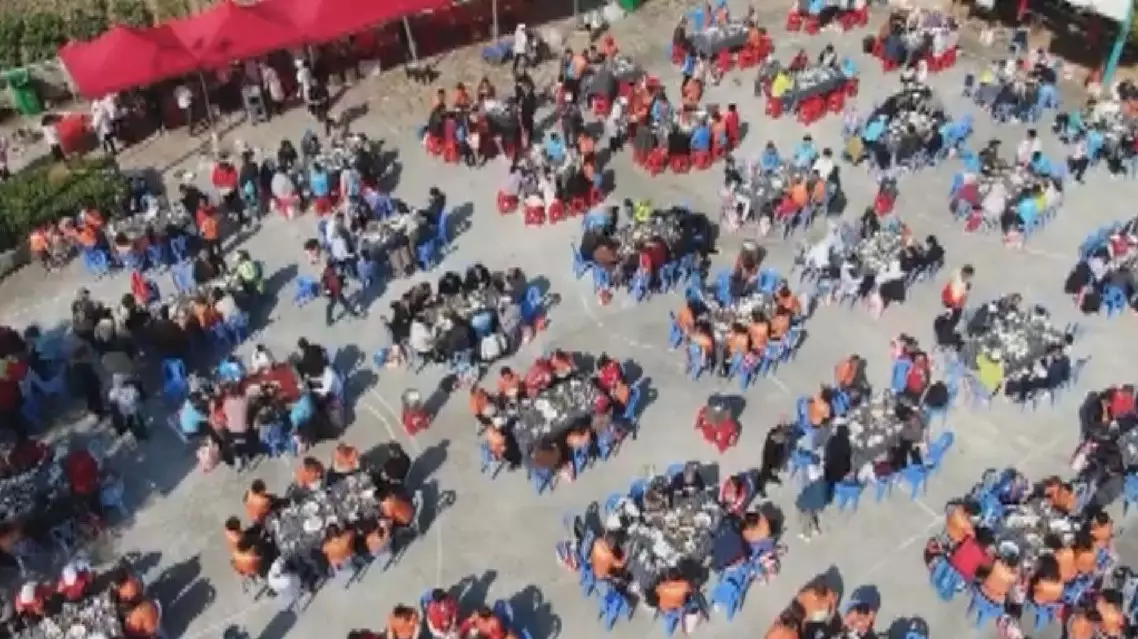
New Year celebrations help boost market for festive goods






